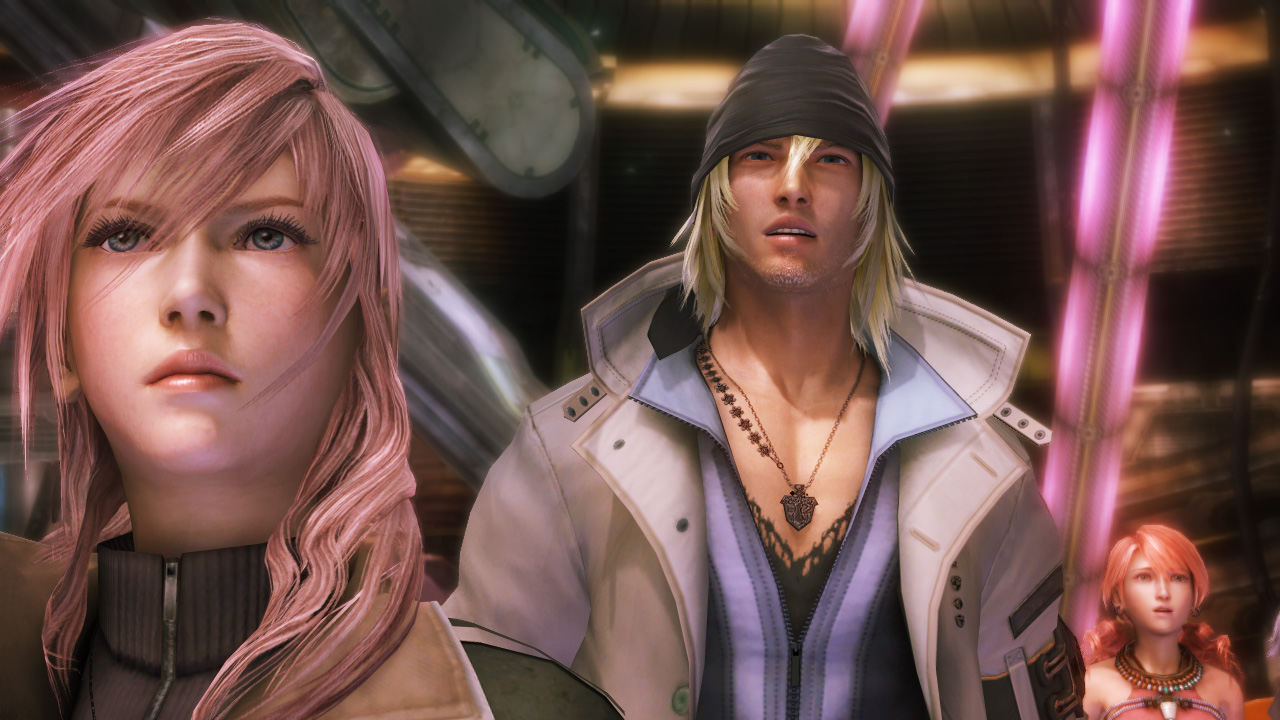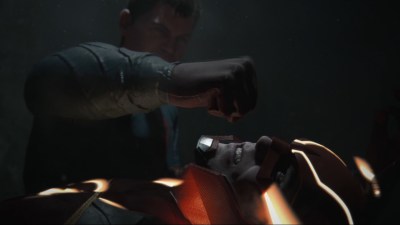I’ll spare you the story about how Square Enix has lost its way and how the Japanese gaming industry has become increasingly irrelevant on the global stage (something even Japanese game developers are concerned about). It’s been done to death, and one of the greatest complaints - that Japanese RPGs are no longer worth playing - has been overstated. The genre has shown remarkable maturity in how it approaches complex ideas and game systems - you just have to know where to look. But I bring it up because it’s the industry narrative that Final Fantasy XIII arguably set in motion.
There’s general agreement that Final Fantasy XIII, the first entry on the then-new HD consoles, marked a turning point in the relationship between Square Enix and its fans. After widespread disappointment, fans turned on the company and on each other: PlayStation 3 fanboys reasoned that Final Fantasy XIII had once been an epic JRPG opus edited into mediocrity by the limitations of the Xbox 360’s cramped DVD9 game discs and were outraged. Fuel was added to the fire when art director Isamu Kamikokuryou came forward stating that “enough lost Final Fantasy XIII content was removed to make another title.” This was in 2010, before the Xbox 360 supported game installs, at which point relative disc capacity became a moot point; the idea that cross-platform development had stunted FFXIII seemed reasonable.
But it’s 2014, and based on the mixed quality of the developer’s output ever since, it would seem that it was a fundamental shift in creative values and talent, and not the change in platforms, that was responsible for the way FFXIII turned out. It’s a point worth reflecting on, because it shows where fan expectations were at time. This was the first Final Fantasy game on HD systems, platforms that could let Square Enix, renowned for their impressive art and production values, run wild. High expectations were inversely proportional to objective appreciation, and the aforementioned fanboy wars only made it worse.
But the reality is that the majority of the criticism against FFXIII is warranted, and anyone revisiting the game today is greeted with an off-putting, chaotic intro-sequence that succinctly encapsulates so many of its failings.
Final Fantasy XIII talks about characters and objects and events, and instead of explaining them expects the player to trawl through a secondary database to make sense of it all. This is a failing of storytelling in its own right, made worse by the fact that the world of FFXIII isn’t deep or steeped enough in its own history to compel the player to care. But there are two bigger problems here that dog FFXIII through its entirety.
With any fantasy world you need to explain the rules under which that world operates. Only then can the player appreciate what passes for “normal”, allowing them to recognize the exotic and profane which characterize interesting plot developments. There’s nothing stopping those rules from being vague and ethereal, so long as they’re consistent and well-integrated.
Final Fantasy XIII forgets this when laying out its establishing principles, launching straight into a situation which may or may not be representative of its world in general. And at times FFXIII doesn’t even play by its own rules; the heroes magically escape their seemingly hopeless situation through a last minute plot convenience that stretches suspension of disbelief to a breaking point, a deus ex machina that undermines the entire journey.
But FFXIII’s world doesn’t just lack integrity; the struggle at the core of the story doesn’t drive the characters (or you) through the game: The characters are tasked with figuring out and putting into action their “Focus”; a cryptic mission statement from the god-like Fal Cie. They’re trapped between the two hopeless extremes of carrying out the Focus, upon which they’ll be turned to crystal, or failing to figure it out in time, in which case they become the zombie-like Cie’th. The heroes realizing their predicament resolve to… stumble blindly through the game with no plan or purpose. After all, what else can they do?
Few JRPGs have actual player agency, making them stories about the characters rather than you, the player. FFXIII goes one step further: it isn’t the even characters’ story. In fact, what passes as a “story” is less some grand narrative and more a collection of tangentially related events.
There was potential for some of the inter-character conflicts to fill in some of the gaps, but sadly it never rises above melodrama, the fault of merely serviceable voice acting – FFXIII is dubbed only in English, complete with the lingering whiff of translation. By 2010, the HD systems were already home to numerous games with high production values written by English-speaking natives, which meant that the subpar translation of an already-average script made FFXIII stand out even more.
This isn’t helped out by the way the game is structured and balanced, the linear one-track design that made FFXIII infamous. Linearity can work wonders when each stop along the path is plot critical, telling you more about the world, characters and story; it instills a sense of breakneck narrative urgency. It was a design choice Final Fantasy X, a game that is precisely as long as it needs to be, employed masterfully.
Unfortunately FFXIII has very little to see or do along the way, and you don’t learn much about the characters or world (plot critical or otherwise). This is most apparent in second half of the game where you spend close to 20 hours making your way towards one destination marker on the horizon, only to have it replaced with another one as you get there. That’s it. Nothing happens but the change of markers. FFXIII cajoles you into running through its swollen gamut of mob encounters with the narrative withheld like a carrot on a stick. And it never gives you that carrot.
It’s just as well that combat, polarizing as it might be, is FFXIII’s strong point - albeit its only one. Battles are both menu-based and conducted in real-time; you shift between “Paradigms”, essentially customizable combinations of job classes mid-battle, and attack primarily using suggested actions offered up by the computer.
The unconventional battle system shifts your responsibility from choosing actions to dictating the ebb and flow of battle through well-timed Paradigm “shifts,” making your role more like that of a conductor than a disembodied general.
This is made possible by how reliably predictable friendly AI is – being smart enough to heal as necessary, apply buffs/debuffs in optimal order, and even systematically test enemies for elemental weaknesses. If you see the game over screen, it won’t be because of errant friendly-AI. No, the most common cause of death is absent mindedness; battles in FFXIII play out fast, Lightning-fast (see what I did there?). Stay in a sub-optimal Paradigm for a few seconds at the wrong time and you’ll be torn to shreds; having a well-executed plan go south at the last second is very much a possibility.
But this actually works to FFXIII’s benefit; battles feel like they play out in a time-compressed chamber where the epic fights that traditionally spanned several hours are condensed into only a dozen minutes. It’s FFXIII’s crowning achievement that its high stakes battle system is the closest a menu-based system can come to edge of your seat, white-knuckle stuff.
But the battle system is where any praise for FFXIII begins and ends. Outside of it there’s nothing of interest to see or do, even mechanically; FFXIII’s weapon customization systems are both extraneous and mystifyingly opaque. And the level-up system is restricted to a low-cap at any given time making it decorative, although it does help curate the difficultly level to the right side of hard.
Despite being billed as an RPG, FFXIII is structured more like a level-by-level, strictly linear action game with menu-based combat – artificially lengthened by wave after wave of enemies. As intense as the battle system can be, it simply isn’t strong enough to carry the weight of an entire 60 hour RPG, especially without any compelling sub-systems or leveling mechanics. And when it does finally open up, that new-found freedom comes too little, too late.
Square Enix should be applauded for having the bravery to try something new with a series which had become increasingly formulaic in terms of its structure. But they should also have had the bravery at some point to step back and admit to themselves that what they were coming up with was deeply flawed from the outset. Final Fantasy XIII is an experiment then; but it’s a failed experiment.


